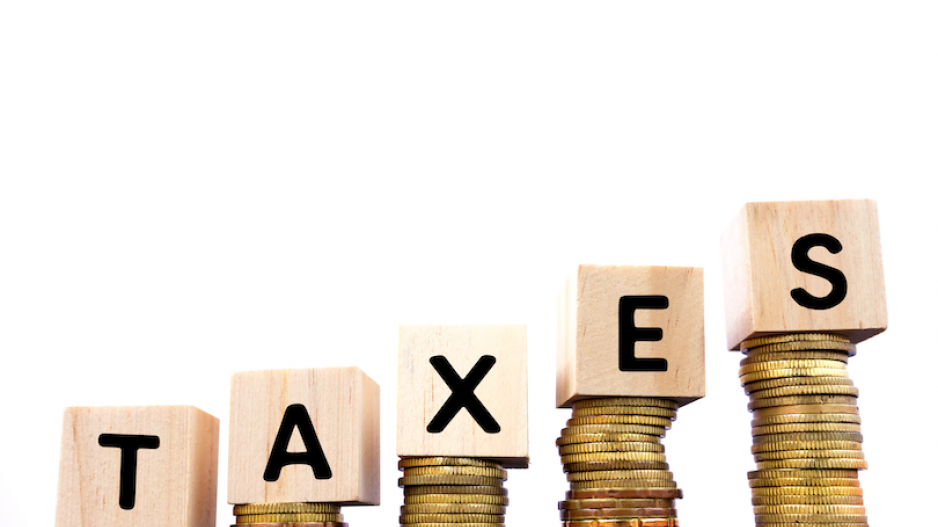For the Surrey Board of Trade (SBOT), the municipality’s business tax burden has reached a tipping point.
Its Feb. 9 release of a report lobbying the provincial government for a comprehensive review of B.C.’s tax system speaks to that burden.
BC Tax Review – For A Competitive Economy outlines what, why and how David Eby’s BC NDP government should implement that review as a first step in reducing the burden local businesses face from rising costs and red tape and reversing their rapidly eroding marketplace competitiveness.
In releasing the report in the leadup to the Feb. 28 release of B.C.’s 2023 budget, Anita Huberman, SBOT’s president and CEO, said, “… the No. 1 item that I’m hearing from our [SBOT] members is that they are faced with rising costs that are impacting their ability to invest in their businesses [and] to make money.”
She added that the tax code is too confusing and the weight of the provincial sales tax (PST), B.C.’s employer health tax and other levies “are too onerous. For a small business, it’s very challenging to be an entrepreneur.”
Businesses and residents face that challenge on numerous fronts in B.C.
One example is the province’s continued use of a retail sales tax (the PST), which penalizes business investments in new equipment and other capital purchases, instead of using a value-added tax used in other provinces that allows those investments to be tax deductible.
B.C.’s PST is a major contributor to what the Fraser Institute notes is Canada’s highest marginal effective tax rate.
The province’s employer health tax also adds significantly to business payroll costs and further erodes tax and marketplace competitiveness for B.C. companies.
Any business tax competitiveness advantage B.C. once held over jurisdictions in the United States evaporated during the Donald Trump presidency when the 2017 Tax Cuts and Jobs Act cut the top corporate tax rate to 21 per cent from 35 per cent.
Huberman said business taxation has consequently been a long-simmering issue for the SBOT.
“But it’s coming to a head in the face of other inflationary pressures, supply chain challenges, labour and skill shortages. It’s the perfect storm right now for businesses.”
The Business Council of B.C. (BCBC) agrees.
Jock Finlayson, BCBC’s senior adviser, said that prior to the outbreak of the COVID-19 pandemic, the council had been advocating for a holistic review of the country’s overall tax system, which he said reflects an economy that Canada had “20 or 30 or maybe 50 years ago. So, we think it is time [for a review].”
He pointed to several factors that need to be addressed in any review of provincial and federal tax systems, including an aging workforce, an aging population and increasing wealth inequality, a lot of which is tied to who owns property.
There is also a digital industrial revolution that is dramatically overhauling business game plans, company cultures and workplace operations.
“And we've got competitive pressure. We’re in a world where capital and skill are increasingly mobile. We [Canada] used to have a competitive advantage over the United States in some key areas of business taxation, like average statutory tax rates and things like that. But that’s gone now because of the tax cuts and reforms that were introduced when Trump was president. So, there’s no longer any tax advantage to deploying capital in Canada versus the U.S.”
Finlayson added that Canada’s personal income tax regime also seriously hampers Canada’s ability to attract the top talent needed to build companies and spearhead innovation.
He pointed out that personal income generates half of the country’s tax revenue.
“And when you combine the provincial rates on top of the federal rates, we've got some of the highest personal income tax rates in the world on what I would describe as upper-middle-income earners. … And those are the people who are critical to driving business innovation, business growth and entrepreneurial wealth creation.”
Consider Bill Gates as an example.
Finlayson said the Microsoft (Nasdaq:MSFT) co-founder’s top personal tax rate in the United States is 39 per cent.
“If he were in B.C., as soon as he hit $228,000 a year, he’d face a combined federal-provincial marginal tax rate of almost 54 per cent. So, you wonder why some of the CEOs of B.C. tech companies that have been recruited in the past few years don’t live in B.C.”
But for the SBOT, the tax system challenges for local businesses are more than financial.
Huberman said reducing the administrative burden when it comes to reporting taxes is a top priority for any tax review because it diverts energy and resources away from maintaining and building any company’s ability to grow and innovate.
“And so there are opportunities here to save businesses money, and to make money for the B.C. government.”
The SBOT report argues that a comprehensive third-party advisory council review of the province’s tax system could provide recommendations to eliminate redundancies and pinpoint simplification opportunities, and “with simplicity, efficiency and certainty comes international competitiveness.”
However, Finlayson said that while he agrees with the SBOT’s push to review B.C.’s tax system, it needs to be done in concert with an overall comprehensive review of the federal taxation regime.



